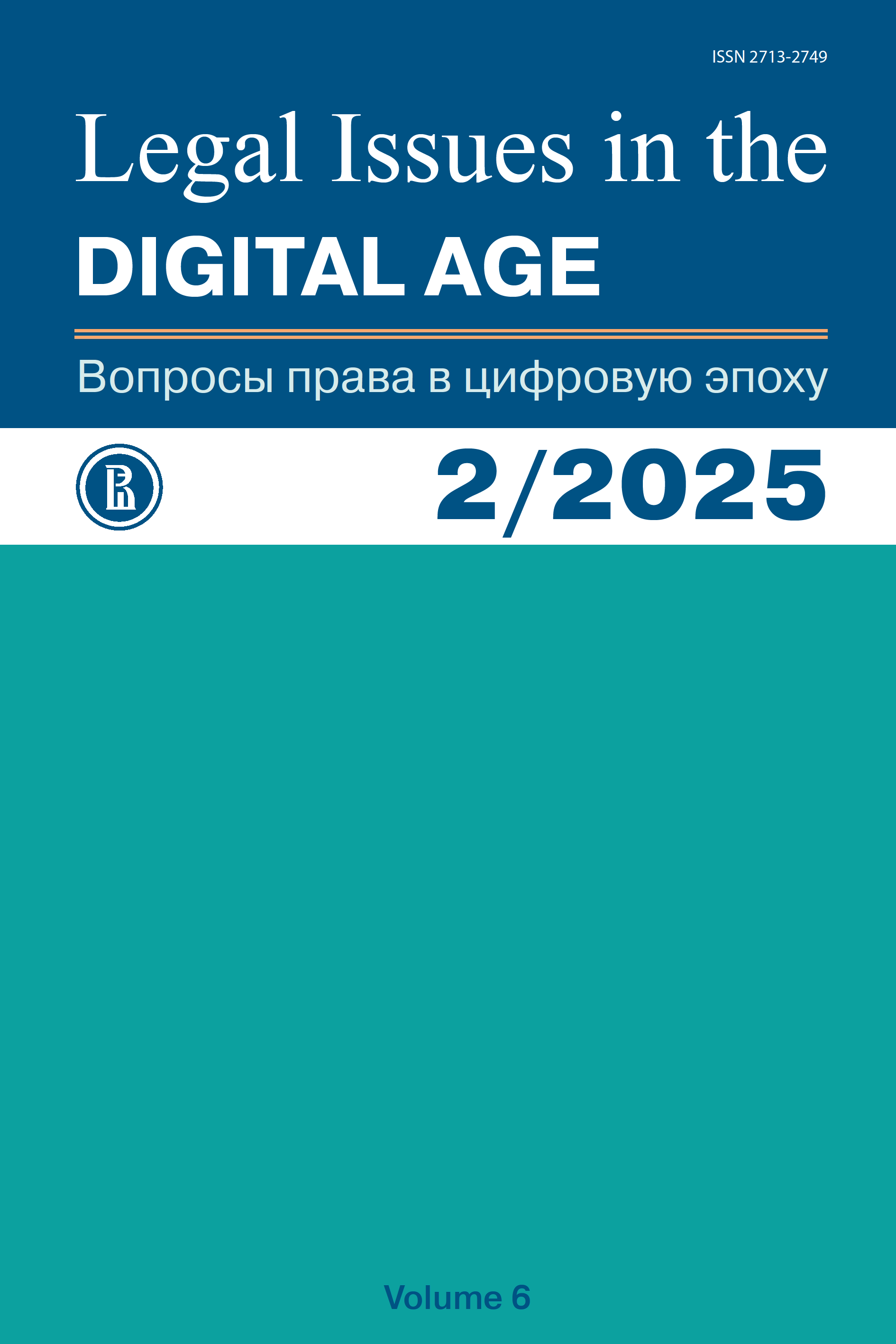Informational Privacy in the Age of Artificial Intelligence: A Critical Analysis of India’s DPDP Act, 2023
Abstract
Informational privacy, often referred as data privacy or data protection, is about an individual’s right to control how their personal information is collected, used and shared. Recent AI developments around the world have engulfed the world in its charm. Indian population, as well, is living under the cyber-revolution. India is gradually becoming dependent on technology for majority of the services obtained in daily life. Use of internet and Internet of Things leave traces of digital footprints which generate big data. This data can be personal as well as non-personal in nature. Such data about individuals can be utilised for understanding the socio-economic profile, culture, lifestyle, and personal information, like love life, health, well-being, sexual preferences, sexual orientation and various other types of individual traits. Issues like data breach, however, have also exposed users of information and technology to various types of risks such as cyber-crimes and other fraudulent practices. This article critically analysis recently enacted Digital Personal Data Protection Act, 2023 (DPDP) in the light of following questions: How it tackles with the issues of informational privacy and data processing? What measures have been envisaged under the DPDP Act, for the protection of informational privacy? How individual rights with respect to data protection are balanced against the legitimate state interest in ensuring safety and security of the nation? Whether this right is available only against the State or against the non-State actors as well? etc. Having critically analysed DPDP Act, the article calls for further refinement of DPDP Act in various areas, more specifically, suggesting that, it is imperative that DPDP Act requires critical decisions based on personal data to undergo human review, ensuring they are not solely the result of automated data processing.
References
Al-Khassawneh Y.A. (2023) A Review of Artificial Intelligence in Security and Privacy: Research Advances, Applications, Opportunities, and Challenges. Indonesian Journal of Science and Technology, vol. 8, no. 1, pp. 79–96.
Artzt M., Tran V.D. (2022) Artificial Intelligence and Data Protection: How to Reconcile both Areas from the European Law Perspective. Vietnamese Journal of Legal Sciences, vol. 7, no. 2, pp. 39–58.
Bakshi P. M. (2025) The Constitution of India. Delhi: Universal Law Publishing, 205 p.
Carey P. (2020) Data Protection: a Practical Guide to UK Law. Oxford: Oxford University Press, 689 p.
Dass R., Sharma A. et al. (2024) Artificial Intelligence in Media Marketing and Law. Delhi: Bloomsbury, 224 p.
Halder D., Jaishankar K. (2012) Cyber Crime and the Victimization of Women: Laws, Rights and Regulations. Hershey: IGI Global, 267 p.
Jain A. K., Jain S. (2025) Lead Smart in the AI Era. Delhi: Rupa Publications, 280 p.
Kamath N. (2012) Law Relating to Computers, Internet and E-Commerce. Gurgaon: LexisNexis, 847 p.
Kranenbarg W., Leukfeldt R. (2021) Cybercrime in Context: the Human Factor in Victimization, Offending, and Policing. Cham: Springer, 407 p.
Kumar S. (2021) Textbook on Information Technology Laws. Delhi: Whitesmann Publishing Co., 464 p.
Lumsden K., Harmer E. (2019) Online othering. Exploring Digital Violence and Discrimination on the Web. Cham: Palgrave Macmilan, 407 p.
Kuner C. et al. (2018) Expanding the Artificial Intelligence-Data Protection Debate. International Data Privacy Law, vol. 8, no. 4, pp. 289–292.
Pal R., Samaraditya P. (2025) MP Jain Indian Constitutional Law. 6th ed. Delhi: Lexis Nexis, 499 p.
Nanda S. K. (2021) Media Law. Prayagraj: Central Law Publications, 497 p.
Radu R. (2019) Negotiating Internet Governance. Oxford: Oxford University Press, 228 p.
Rajput B. (2020) Cyber Economic Crime in India: an Integrated Model for Prevention and Investigation. Cham: Springer, 262 p.
Ryder R.D., Naren N. (2020) Internet Law. Delhi: Bloomsbury, 539 p.
Shah N. (2024) AI and Social Ethics: Gandhian Approach. Jaipur: Rawat Publications, 220 p.
Sharma V., Sharma S. (2023) Information Technology Law and Practice: Cyber Laws and Laws Relating to E-Commerce, Privacy, Social Media, Defamation. Delhi: LexisNexis, 694 p.
Viano E.C. (2017) Cybercrime, Organized Crime, and Societal Responses: International Approaches. Cham: Springer, 378 p.
Westin A.F. (1968) Privacy and Freedom. Washington and Lee Law Review, vol. 25, no. 1, p. 166.
Yanamala A.K., Srikanth S. (2023) Advances in Data Protection and Artificial Intelligence: Trends and Challenges. International Journal of Advanced Engineering Technologies and Innovations, no. 1, pp. 294–319.
Završnik A., Simončič K. (eds.) (2023) Artificial Intelligence, Social Harms and human Rights. Cham: Palgrave Macmilan, 276 p.
Copyright (c) 2025 Tandon U., Gupta N.K.

This work is licensed under a Creative Commons Attribution-ShareAlike 4.0 International License.
Authors who publish with this journal agree to the Licensing, Copyright, Open Access and Repository Policy.







